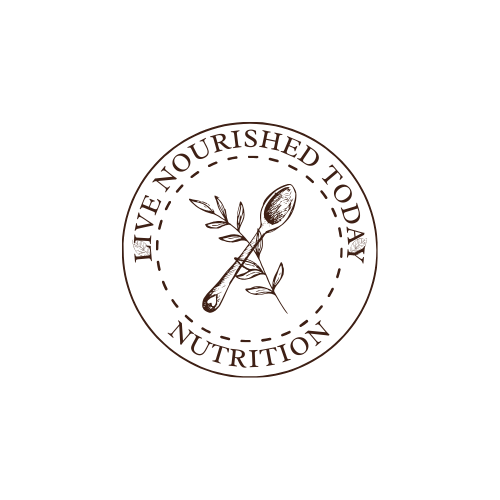Live Nourished Today, LLC
What Vitamins and Minerals are Important for Kids
Calcium:
Calcium is required for bone health and teeth. It is the main mineral found in bones. Consuming enough calcium can help the bones grow big and strong, which is especially important as a kid. Calcium does not get absorbed easily, phytates in spinach and beans can interfere with that absorption.
- Sources of calcium include tofu, yogurt milk, cheese, sardines, figs, oranges, white beans, broccoli
Vitamin D:
Vitamin D supports healthy bones and teeth and supports the immune system. Vitamin D acts as calcium’s assistant for absorption. Vitamin D can come from food sources and the sun. Make sure to stay in the sun for at least 15 minutes before applying sunscreen. In the winter, levels from the sun will be more difficult to get, so obtain from food sources too.
- Vitamin D food sources include salmon, mackerel, sardines, milk-fortified, orange juice-fortified, cereal-fortified, egg yolk
Iron:
Iron is important for oxygen transport and blood production. Iron is needed for normal brain development and a lack of iron can make us feel tired. Kids with iron deficiency can experience problems with concentration, attention span, and difficulties in school. Heme iron is more readily absorbed by non-heme iron. Pair non-heme iron, with vitamin C for better absorption.
- Heme iron sources include beef, chicken, oysters, eggs, tuna
- Non-heme iron sources include cereal, dark leafy greens, quinoa, potatoes with skin
Vitamin A:
Vitamin A is important for vision & eyesight, organ development, cell growth and your immune system. The vitamin A that comes from animal products are more easily absorbed but have an upper limit. Vitamin A from plant foods contain beta-carotene and do not have an upper limit so you can safely eat as much beta-carotene fruits and vegetables.
- Sources of Vitamin A include beef liver, eggs, butter, milk, sweet potato, pumpkin, carrots
B-vitamins:
The B-vitamins are essential for energy metabolism. They are needed to convert the carbohydrates, protein, and fats into energy that your body can use. Most B-vitamins are found in beef, chicken, fish, milk, eggs, whole grains and enriched cereals. A common B-vitamin deficiency is B-12. Vitamin B-12 is required for proper brain function, and creating energy.
- Vitamin B-12 sources include eggs, beef, yogurt, nutritional yeast (fortified), cereals (fortified), salmon, and liver.
Vitamin C:
Vitamin C is a main vitamin involved in keeping the immune system strong. But it’s also required for collagen synthesis which is needed for bone growth and development, and is an antioxidant.
Children's young immune systems can make them more prone to getting sick, getting the adequate amount of vitamin C can help reduce this.
- Vitamin C sources include fruits and veggies such as kiwi, orange juice, grapefruit, strawberries, sweet red bell pepper, broccoli, and tomato



